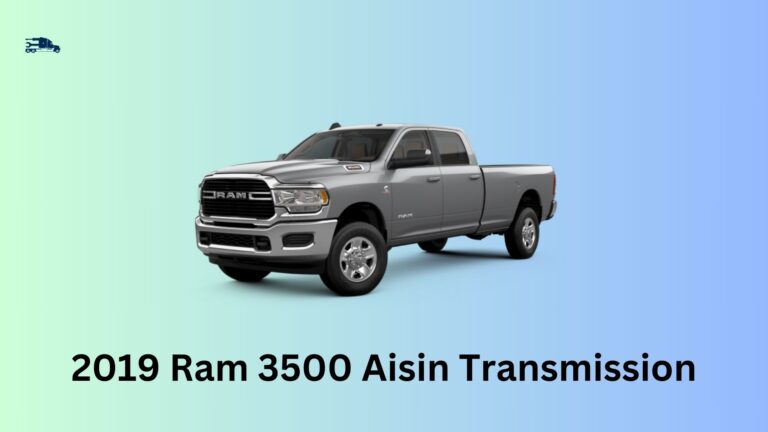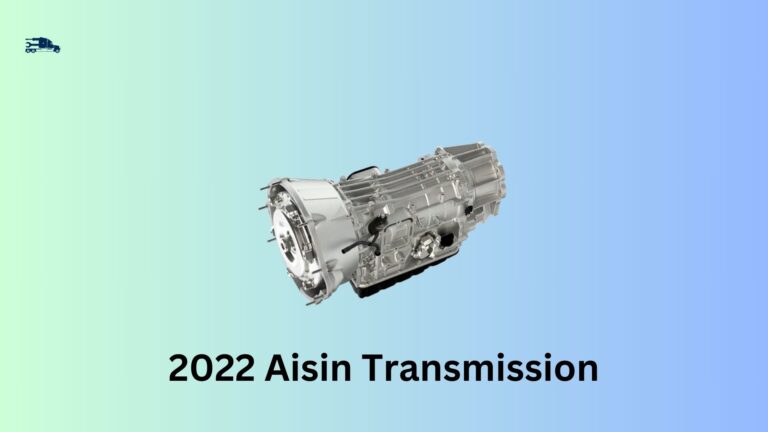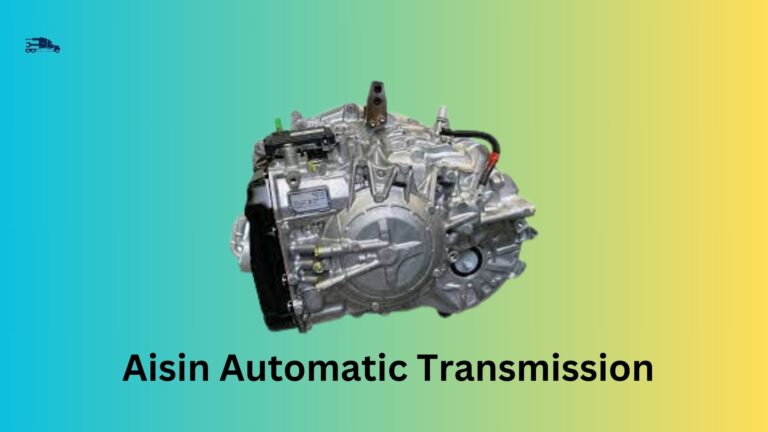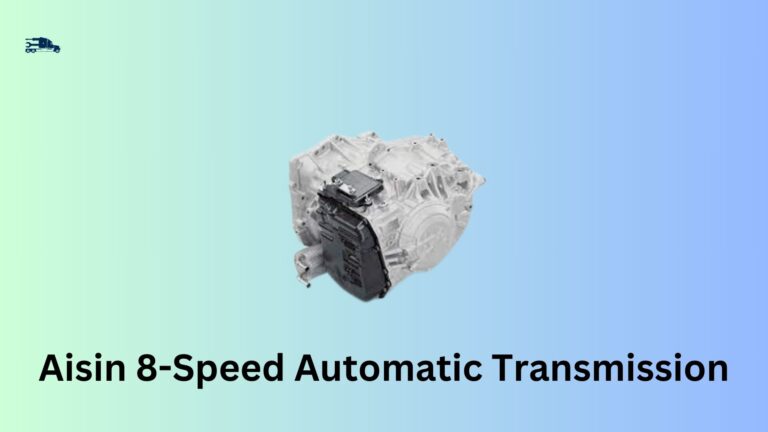Are you experiencing issues with your 2020 RAM truck’s Aisin transmission? Don’t worry, you’re not alone. In this blog post, we’ll dive into the common problems that owners of these trucks have encountered, and we’ll discuss the causes, solutions, and preventative measures you can take. Let’s get started!
Table of Contents
10 Common Transmission Problems in 2020 RAM Aisin Transmissions
If you own a 2020 RAM truck with an Aisin transmission, it’s essential to be aware of the common issues that some owners have encountered. These problems can affect the overall performance and reliability of your vehicle. Let’s take a closer look at some of these common transmission problems:
1. Torque Converter Lockup Shudder
One of the issues reported by owners is the torque converter lockup shudder. This problem typically occurs when the torque converter fails to engage smoothly, resulting in a noticeable vibration or shuddering sensation. It can be especially noticeable when the transmission shifts gears or during highway driving.
2. Transmission Overheating
Another common problem is transmission overheating. This can be caused by various factors, such as insufficient fluid levels, a malfunctioning cooling system, or severe driving conditions. When the transmission overheats, it can lead to reduced performance, erratic shifting, and, in extreme cases, even transmission failure.
3. Delayed Engagement
Delayed engagement refers to a delay in the transmission’s response when shifting from park to drive or reverse. This can be frustrating and may indicate issues with the transmission’s internal components or the transmission control module. It’s crucial to address this problem promptly to prevent further damage.
4. Gear Slippage
Gear slippage occurs when the transmission unexpectedly shifts out of gear or fails to stay engaged in a particular gear. This can result in a loss of power, reduced acceleration, and poor fuel efficiency. Gear slippage can be caused by worn-out clutch plates, a faulty solenoid, or low transmission fluid levels.
5. Harsh Shifting
Some owners have reported experiencing harsh shifting, where the transmission shifts gears abruptly and forcefully. This can lead to a jerky driving experience and potential damage to the transmission over time. Harsh shifting can be caused by issues with the transmission’s hydraulic system, valve body, or clutch plates.
6. Transmission Fluid Leaks
One of the common issues reported by owners is transmission fluid leaks. These leaks can occur due to a variety of reasons, such as damaged seals, gaskets, or transmission lines. If left unaddressed, fluid leaks can lead to low fluid levels, which can cause overheating and potential transmission damage.
7. Transmission Control Module Issues
The transmission control module (TCM) is responsible for managing the shifting and overall performance of the transmission. Some owners have experienced TCM-related issues, such as faulty sensors or software glitches. These issues can result in erratic shifting, delayed engagement, or even complete transmission failure.
8. Torque Converter Clutch Problems
The torque converter clutch (TCC) is a critical component of the transmission system. Some owners have reported problems with the TCC, such as failure to engage or disengage properly. This can lead to issues like stalling, shuddering, or decreased fuel efficiency.
9. Towing-related Transmission Problems
If you use your RAM truck for towing heavy loads, you may encounter specific transmission problems. The added strain from towing can put stress on the transmission, leading to issues like overheating, increased wear and tear, or even transmission failure. Proper maintenance and ensuring your vehicle is equipped for towing can help mitigate these problems.
10. Erratic Shift Patterns
Another common problem reported by owners is erratic shift patterns. This can include delayed shifting, harsh shifting, or the transmission getting stuck in a particular gear. These issues can be caused by various factors, including internal component wear, hydraulic system problems, or issues with the transmission’s software.
Impact on Vehicle Performance and Safety
When it comes to the overall performance and safety of your vehicle, the condition of the transmission plays a crucial role. Transmission problems can have a significant impact on how your vehicle operates and can pose risks to both performance and safety. Let’s delve into this topic further:
Discussion on how transmission problems affect the vehicle’s overall performance
Transmission problems can manifest in various ways, and each issue can have a distinct impact on your vehicle’s performance. Problems like delayed engagement, gear slippage, or harsh shifting can result in a jerky driving experience, reduced acceleration, and even a loss of power. These issues can compromise your vehicle’s ability to handle different driving conditions, impacting its overall performance.
Check it out more articles on Transmission problems:
2021 Ram Aisin Transmission Problems
Aisin 8-Speed Automatic Transmission Problems
Aisin 6-Speed Automatic Transmission Problems
Aisin Seiki AS68RC Transmission Problems
2019 Ram 2500 Transmission Problems
RAM Aisin Transmission Problems
Dodge Ram 3500 Transmission Problems
Aisin Automatic Transmission Problems
Risks associated with driving with a faulty transmission
Driving with a faulty transmission can pose risks not only to your vehicle but also to your safety. A faulty transmission can lead to unexpected breakdowns, leaving you stranded on the road. Moreover, problems like torque converter lockup shudder or erratic shift patterns can affect your control over the vehicle, potentially causing accidents or collisions. It’s crucial to understand that a faulty transmission can compromise your safety and the safety of others on the road.
The importance of addressing the issues promptly
Addressing transmission issues promptly is of utmost importance. Ignoring or delaying repairs can lead to further damage and potentially increase repair costs. Additionally, driving with a faulty transmission puts unnecessary strain on other components of your vehicle, which can lead to additional problems. By addressing these issues promptly, you can ensure the longevity of your vehicle, maintain optimal performance, and enhance safety on the road.
How to Identify Transmission Problems
Identifying transmission problems in your vehicle early on is crucial to prevent further damage and costly repairs. By paying attention to certain signs and symptoms, you can spot potential issues with your transmission. Let’s explore some key indicators to look out for:
Signs and symptoms to look out for
Several signs can indicate transmission problems. Unusual noises, such as grinding, whining, or clunking sounds, can be a red flag. These noises may occur during shifting or when the vehicle is in neutral. Additionally, warning lights on your dashboard, specifically the “check engine” or “transmission” light, should never be ignored. Other symptoms include delayed engagement when shifting gears, slipping gears, or a burning odor coming from the transmission.
Unusual noises, warning lights, and abnormal shifting patterns
Unusual noises can indicate internal issues within the transmission, such as worn-out gears or a damaged clutch. Warning lights are designed to alert you to potential problems, and if the transmission light illuminates, it’s essential to have it checked immediately. Abnormal shifting patterns, like rough or jerky shifting, can indicate issues with the transmission’s hydraulic system or internal components.
Importance of seeking professional diagnosis
While it’s helpful to be aware of these signs and symptoms, it’s important to seek a professional diagnosis from a qualified mechanic or dealership. They have the expertise and diagnostic tools to accurately identify and address transmission problems. Attempting to diagnose or repair transmission issues without proper knowledge and equipment can potentially worsen the problem or lead to additional damage.
If you notice any of these signs or experience any abnormal behavior with your vehicle’s transmission, it’s best to schedule an appointment with a professional as soon as possible. They can perform a thorough inspection and provide the necessary repairs or maintenance to keep your transmission running smoothly.
Preventative Measures
Taking preventative measures can go a long way in avoiding transmission problems and ensuring the longevity of your vehicle. By following a few simple tips and adopting proper maintenance practices, you can reduce the risk of transmission issues in the future. Let’s explore some preventative measures:
Tips to prevent transmission problems in the future
Regular maintenance is key to preventing transmission problems. Ensure that you follow the manufacturer’s recommended maintenance schedule, which typically includes fluid changes and filter replacements. Regularly check the transmission fluid level and quality, as low or dirty fluid can lead to performance issues. It’s also important to address any leaks promptly, as they can result in fluid loss and potential damage to the transmission.
Proper maintenance practices and routine inspections
In addition to fluid changes, other maintenance practices can help prevent transmission problems. Regularly inspect the transmission cooler and ensure it is clean and functioning properly. The cooler helps regulate the transmission’s temperature, preventing overheating. It’s also important to inspect and replace worn-out or damaged transmission mounts, as they can cause misalignment and excessive vibration.
Driving habits that can reduce stress on the transmission
Your driving habits can significantly impact the health of your transmission. Avoid aggressive driving, such as rapid acceleration or sudden braking, as it puts unnecessary stress on the transmission. When starting the vehicle, give it a moment to warm up before shifting into gear. Additionally, when parking on an incline, engage the parking brake before shifting into the park to reduce strain on the transmission’s parking pawl.
Conclusion
While the 2020 Ram Aisin transmission may have experienced some reported problems, it’s important to remember that every vehicle can have its unique issues. By staying informed about common transmission problems, following proper maintenance practices, and seeking professional help when needed, you can minimize the impact and ensure a smoother driving experience with your Ram truck.






